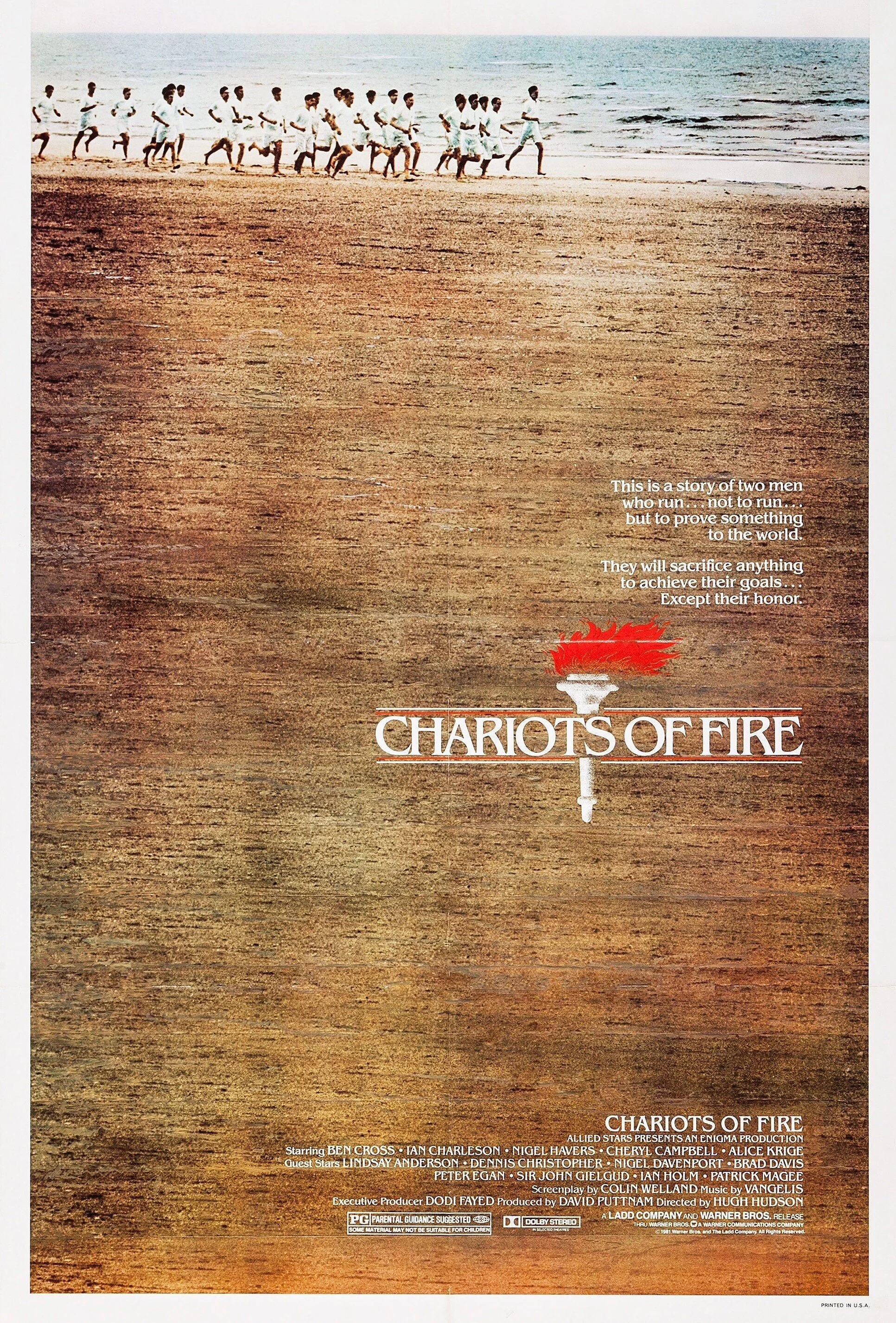Chariots of Fire (1981)
Written by Colin Welland
Directed by Hugh Hudson
I’m going to start this by saying that I hate running. I think Runner’s High is a myth. So, naturally, I was hesitant about this film. Why would I want to watch a two hour film about running? But, I remembered my lesson from Rocky, and resolved to have an open mind.
Chariots of Fire is the second Sports Film on this list, after Rocky, and this film does not come close to Rocky by a long shot. There’s a lot I didn’t like about this film, and very little that I did.
Running
The biggest issue I had was that the topic of running is RELENTLESS. Whereas in Rocky, the film was about boxing, but there were whole subplots that weren’t about boxing, in this film, every single scene either features running or is about running. There are no subplots that deal with anything else. There’s discussion of Abrahams (Ben Cross) being Jewish, and Liddell (a great performance (which isn’t saying much) by Ian Charleston) being devoutly religious, but both of those discussions are only mentioned in context of the running. In Rocky, Rocky and Adrian have an entire romantic subplot that has nothing to do with boxing; there are whole scenes in which boxing isn’t even mentioned. Here, as I mentioned, every scene features running or discussion of running.
More running
From a technical standpoint, there is a great redeeming quality, in that the cinematography is really excellent. The framing, the use of handheld cameras, and even the way the camera moves is fantastic. Compared to a modern film, it isn’t all that groundbreaking, but in comparison to the rest of the list, there’s definitely a modernity to how the camera is handled, which is excellent for a period piece. While I give the film high marks for the cinematography, I have to downgrade the film over its editing. At the beginning of the film, we start in the late 1970’s, then we flashback to 1924, then we flashback AGAIN to 1919. I have no problem with playing with time, and in fact I actually got excited for a moment that this film would feature shifting timelines, but it turns out, it’s just a flashback within a flashback (the 1919 segment just plays until it catches up with the 1924 segment, then jumps ahead to the 1970’s). From an editing standpoint, this is just lazy. It’s as if the filmmakers wanted to choose between two different frame stories, and couldn’t make a decision, so they just used both of them. It’s a bizarre editing choice.
EVEN MORE RUNNING. MAKE. IT. STOP.
The most bizarre choice is That Song. We all know which song I’m talking out. It’s a strange song in and of itself, but pairing this extremely 80’s song with a story set in the 1920’s makes no sense. Apparently, it was a choice of the filmmakers (well, obviously) to have a modern score with the period piece (to make it more relatable?), which would be fine, except most of the score is from the period. Vangelis inserts 2-3 pieces of score, but it’s not enough to complete the filmmakers vision. Instead, it just comes across as exceedingly bizarre.
I know I’m gonna get all kinds of comments about how I’m wrong, and this film so good, and so on. I might be judging this film too harshly, but it’s a Best Picture winner. It deserves to be analyzed closely. This film takes all of the bad qualities of a Sports Film, and none of the good, and produces a boring biopic. Some great cinematography isn’t enough to save this one.
FINAL GRADE: C-





